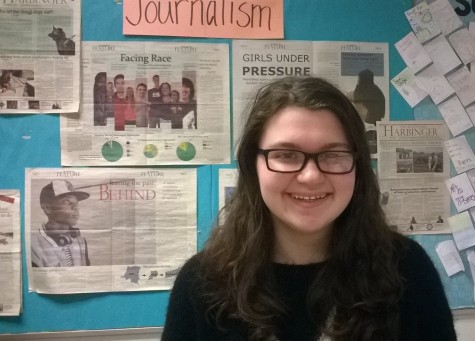English Language Development encourages foreign students to embrace cultural differences, similarities
June 25, 2016
The English Language Development (ELD) class is helping foreign students hone their English language skills and cultural knowledge of the United States.
Students in this program are learning English as a second language, and many speak multiple other languages.
“[The ELD program] definitely helps people coming from another country,” freshman ELD student Pieter-Jan Velaers said, who moved from Belgium to the U.S. two years ago. “In the beginning, it’s definitely really hard to adapt to the system, and it helps a lot.”
The ELD students come from all over the world, including South America, Europe, and Africa. The program strengthens students’ reading, writing, and speaking skills, as well as their knowledge of American culture.
The ELD program aims to have its students speak with a native-like proficiency and adapt to a new culture.
“[Moving from another country] is hard. You don’t know what is appropriate,” junior ELD student Iptisam Nzovu said. Nzovu came from Uganda two years ago and speaks four other languages.
However, a key point in the program is for students to hold onto native languages and cultures.
“My students should not want to assimilate,” ELD teacher Jennifer Cuker said. “I want them to embrace U.S. culture and also hold onto and cherish their home cultures.”
Cuker explained how her students’ cultures are similar and different to U.S. culture and how students can adapt to these changes.
“I try to incorporate their home cultures and make comparisons,” Cuker said.
ELD students also have the opportunity to learn about their classmates’ many different cultures.
“It’s interesting seeing people come from all over the world,” freshman ELD student Felipe Junior Ribeiro said.
Ribeiro moved from the U.S. to Brazil at age ten and moved back to the U.S. after three years.
Although they may come from different places, the students all share some experiences.
“[The other ELD students] know how it feels to come from a different place,” Velaers said.
“[The ELD class] helps me to feel free talking,” Nzovu said. “We all don’t know as much [English], but you feel confident to talk in [ELD] class.”
The ELD program also offers an after school club called English Conversation Pairs that meets every other Thursday.
“Non-native English speakers and native English speakers talk to each other and have conversations and [native speakers] help [non-native speakers] with English, and we do games,” Velaers said.
Students break up into small groups and are given discussion questions that they can use, although straying from them is allowed and encouraged. Then the group reconvenes to have larger discussions and play games.
“Oftentimes the questions bring about culture and life in general, or their experiences as teenagers. There’s a lot of comparison, and what I think to be interesting questions,” Cuker said.
“It’s fun!” Nzovu said. “You should visit.”
The ELD program has partnered with the Spanish National Honors Society, having Spanish students function as conversation partners. Native English speakers may soon have the opportunity to practice Spanish and French with native speakers.










